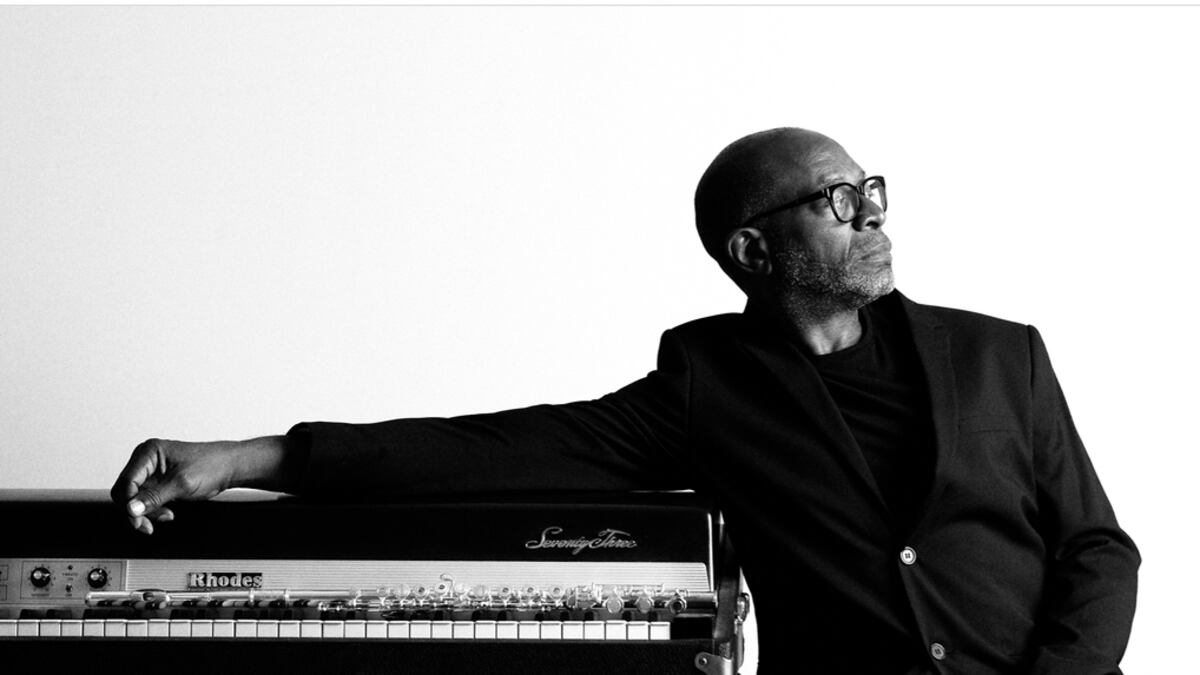Brian Jackson wants to clarify a point about the blues.
The genre’s image in popular culture has long been depressive: “the sad, weeping guy with his foot on the soapbox singing about how he lost his woman,” Jackson says. But to quote from “Path to Macondo/Those Kind of Blues,” a single from his new album This Is Brian Jackson, the 69-year-old musician prefers the kind of blues that say, “Don’t believe what they tell you, you are important, you are an individual, you are intelligent, you can get past this.”
The Portland resident can comfortably share the title of “bluesologist” with Gil Scott-Heron, the late singer-songwriter, poet, and foundational hip-hop artist with whom Jackson recorded nine albums between 1971 and 1980.
Though Jackson has worked with everyone from Stevie Wonder to Kool & the Gang to Earth, Wind & Fire, he’s best-known as Scott-Heron’s former musical partner, and his arrangements give a sense of sweep and melancholy to classic albums like Pieces of a Man and Winter in America.
Jackson has been a Portland resident since 2019, when he retired from his longtime job with the city of New York, where he was born and lived for most of his life. With more time on his hands to make music, he’s gearing up to release his first album as a solo artist in more than 20 years, which comes out on BBE Records on May 27.
“There were two songs that were originally recorded in the ‘70s,” he says of the album’s eight tracks. “We had this idea that maybe we would run a contest to award people a free album or something if they guessed which ones, so I’m not at liberty to disclose which ones.”
The music itself is very much within the continuum established on those ‘70s albums with Scott-Heron, especially “Little Orphan Boy,” which marries elegiac lyrics to a seductive dance groove in the fashion of the duo’s 1974 masterpiece “The Bottle.” Yet the spit-shined production by Daniel Collás feels distinctly modern, and there’s a clear-eyed calm in Jackson’s voice that really only shows up in the music of those who’ve been around for a long time and are comfortable in their own style.
“I’m constantly improving,” he says. “I’m constantly figuring out new ways to say things. I’m proud of all of my work, and I won’t put it out unless I am.”
Jackson was a teenage piano prodigy when he met Scott-Heron, then a fellow student at Lincoln University in Pennsylvania. Within a few years, the duo was leading world-class session musicians on some of the most acclaimed soul albums of the ‘70s.
Sensing a rift in their musical sensibilities, the two parted ways in 1980. A few years later, Jackson discovered that Scott-Heron had dissolved their publishing company Brouhaha Music behind his back and removed Jackson’s name from the publishing.
To this day, Jackson sees no royalties from the music he and the man he still refers to as his “brother” made together, even when sampled by mega-selling artists like Kanye West and Kendrick Lamar.
Jackson’s initial efforts to create a solo album were to no avail. “It wasn’t the best time musically for someone who makes the kind of music that I do,” he says. “I went to 15 labels and they all turned me down. So instead of crying in my beer, I decided to get a job working for the city.” (He worked as a project manager in the city of New York’s IT department.)
For a few years in the early ‘90s, Jackson almost quit music, focusing on martial arts as a form of emotional self-control. “I believe it prolonged my life and gave me a new strength that I hadn’t been able to access,” he says.
Encouraged by his martial arts teacher to return to music, Jackson released his solo debut Gotta Play in 2000. His day job and family occupied the bulk of his time until his retirement and relocation, but now he’s more prolific than ever. He released an album last year called Jazz Is Dead 008 with Ali Shaheed Muhammad and composer Adrian Younge, and an album of “Little Orphan Boy” remixes is coming in July.
Jackson harbors more love for his former partner, who died in 2011, than one might expect. He never took legal action against him (“am I gonna feed my kids or some lawyer’s kids?”), and though Scott-Heron had few kind words for Jackson after the dissolution of their partnership, Jackson finds himself able to forgive.
“We all have family members we don’t get along with very well,” he says. “But we have memories of having had each other’s backs and grown together and experienced life together. And when you have that kind of relationship with someone, it’s impossible to discount that.”
LISTEN: This Is Brian Jackson is available Friday, May 27, on BBE records, bbemusic.com. $14.97.
